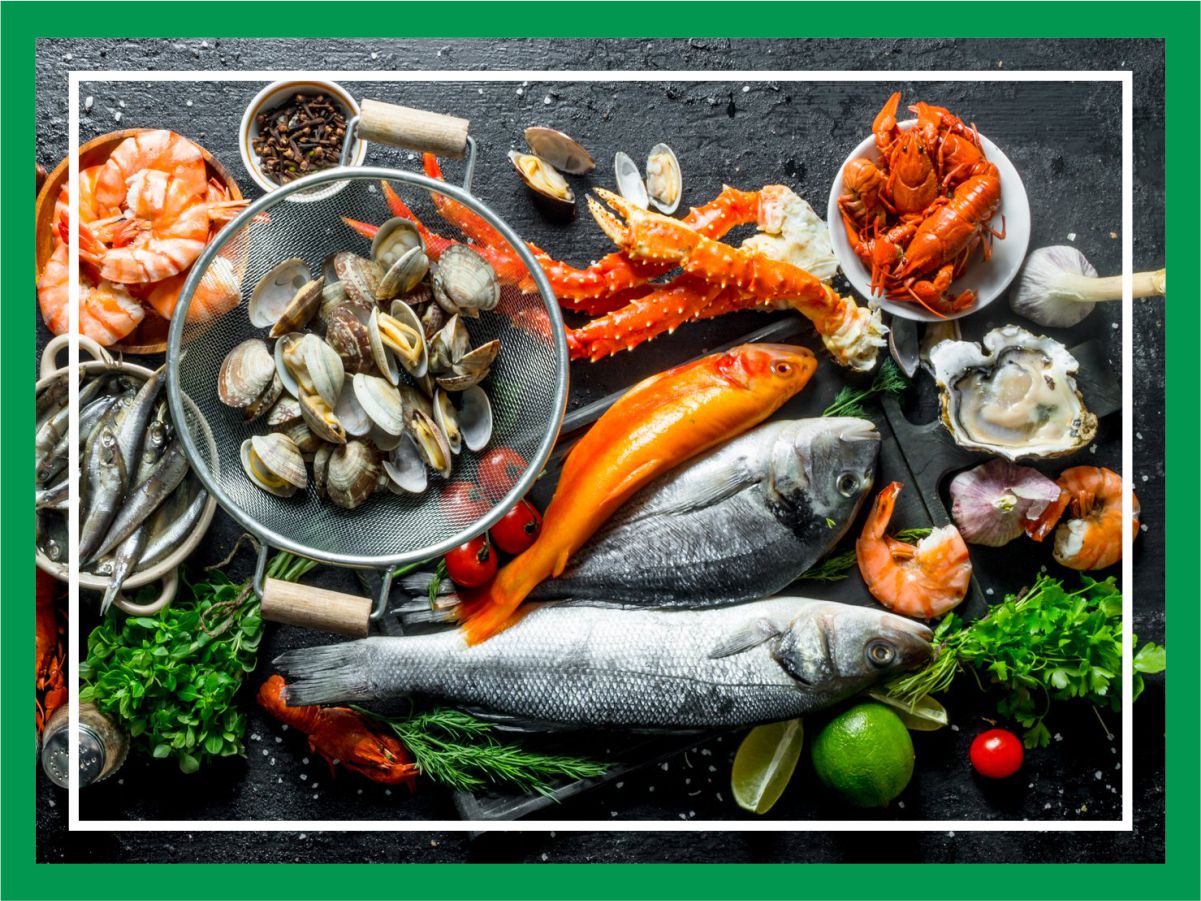Sea Food
Fish and seafood refer to all non-plant life from natural bodies of water as well as human-made fish farms. Fish and seafood are reliable sources of Halal food, but there is a number of deferring opinions on the Halal and Haram status of fish and seafood.
- It is permissible to eat a whale even though it is not considered a true fish because it is a mammal. Similarly, animals that wholly live in water are permitted for food
- There is no requirement to slaughter sea animals unlike the requirement of land animals, even if they are mammals. They do have to be slaughtered humanely, generally by leaving them out of the water to let them die their natural death. Fish and seafood should be prepared in a manner that the animal does not suffer excessively
- Unlike land animals, it is permitted to eat dead sea animals, however, they must not show any signs of deterioration and spoilage
The cultured aquatic animals should be fed a healthy balanced diet using clean ingredients. Because of the high cost of fish meals, some growers may use rendered animal meals (animal by-products, feather meals, and porcine blood meals) as the protein source in the feeds. Such ingredients may render these aquaculture fish as Makrooh and Haram. General Halal standards guidelines for fish and seafood consist of maintaining the identity of the product and not using any prohibited ingredients during the processing. The Halal standards guidelines also include using equipment that has been used for any Haram products.
If you are interested to know more about Sea Food Halal certification requirements please contact Minhaj Halal Certification.
If you are interested to know more about Sea Food Halal certification requirements please contact Minhaj Halal Certification.

